SolusVM Extended Cloud For WHMCS
Contents |
About SolusVM Extended Cloud For WHMCS
| Opis! |
- Client Area Management Includes:
| ✔ |
| ✔ |
| ✔ |
| ✔ |
| ✔ |
| ✔ |
| ✔ |
| ✔ |
| ✔ |
| ✔ |
| ✔ |
| ✔ |
| ✔ |
| ✔ |
| ✔ |
| ✔ |
| ✔ |
- Additional Functionality:
| ✔ Multi-Language Support |
| ✔ Supports Advanced Billing For WHMCS (read more) |
| ✔ Supports WHMCS Version V5 and Later |
Installation and Configuration
| In this tutorial we will show you how to successfully install SolusVM Extended Cloud For WHMCS. We will guide you step by step through the whole installation and configuration process. |
| 1. Log in to your client area and download SolusVM Extended Cloud For WHMCS. |
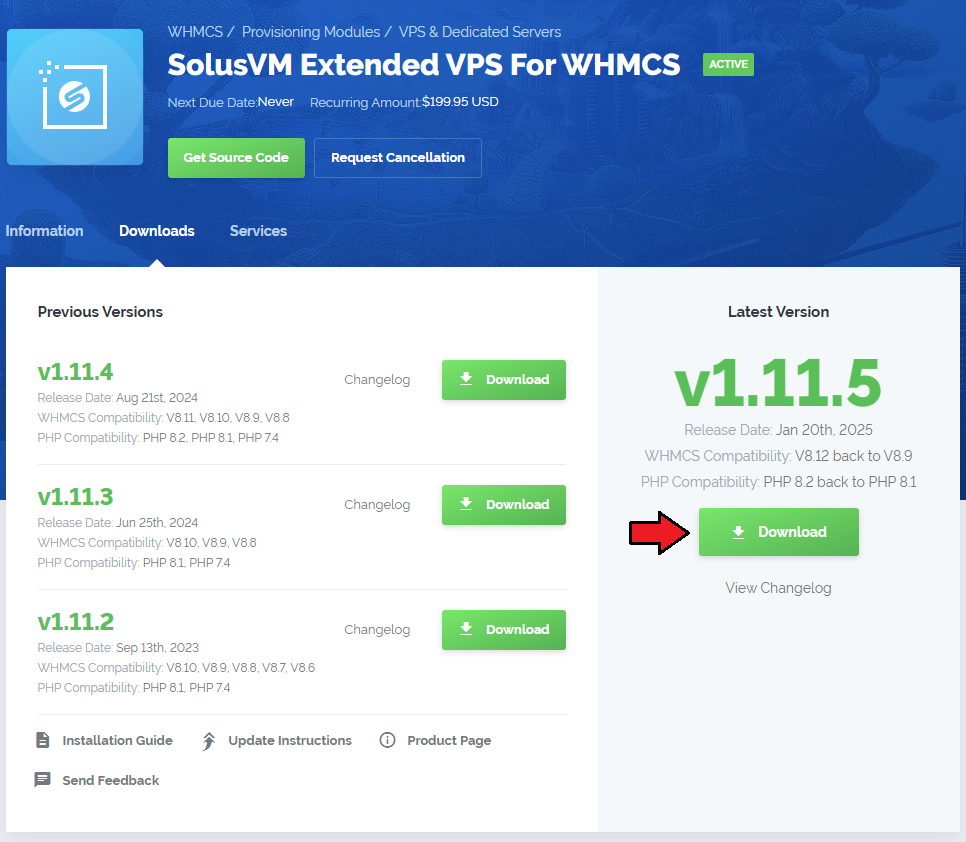
|
| 2. Upload and extract the module into the main WHMCS directory. |
| Files in your WHMCS directory should look like this. |

|
| 3. When you install SolusVM Extended Cloud for the first time you have to rename 'license_RENAME.php' file. |
| File is located at 'modules/servers/solusvmExtendedCloud/license_RENAME.php' . Rename it from 'license_RENAME.php' to 'license.php' . |
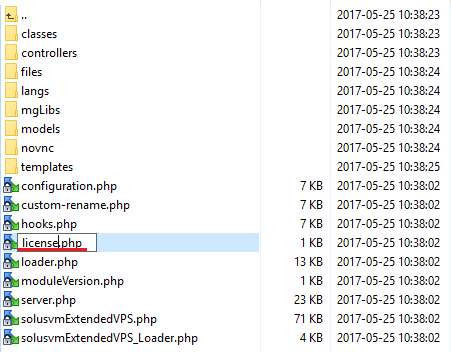
|
| 4. In order to configure your license key you have to edit a previously renamed 'license.php' file. |
| Enter your licence key between quotation marks as presented on the following screen. You can find your license key at your client area → 'My Products' . |
| File:SVC4.png |
| 5. Now we will show you how to configure a new product. First, log in to your SolusVM admin area, go to 'CONFIGURATION' → 'API Access' and add API User. |

|
| 6. Enter your current IP and once again click on 'Add API User' button. |

|
| 7. Now log in to your WHMCS admin area. Press 'Setup' → 'Products/Services' → 'Servers' . |
| Afterwards press 'Add New Server' . |
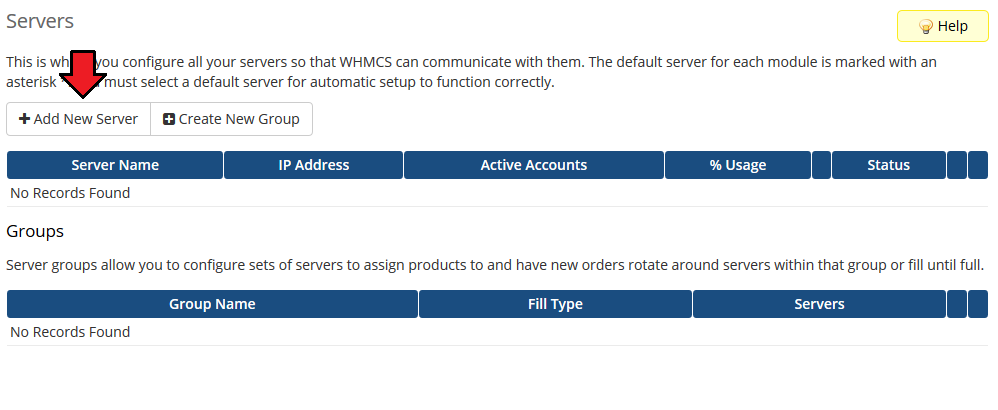
|
| 8. Enter your server name and IP address. Next, enter your API User ID into 'Username' field and your API User Key into 'Password' field. Choose 'SolusvmExtendedCloud ' from a dropdown menu and press 'Save Changes' . |
| File:SVC7.png |
| 9. After you configure your server correctly, you will see a following screen. |
| Test your connection through pressing on 'Test Connection' . Now you need to create a new group for your server. For that purpose press 'Create New Group' . |
| File:SVC8.png |
| 10. Enter name, click on your previously created server, press 'Add' then press 'Save Changes' . |
| File:SVC9.png |
| 11. In order to create and configure product click on 'Setup' → 'Products/Services' → 'Products/Services' . |
| If you don't have a product group, click on 'Create a New Group' . If you do, simply go to step 13. |

|
| 12. Enter product group name, choose order form template and press 'Save Changes' . |
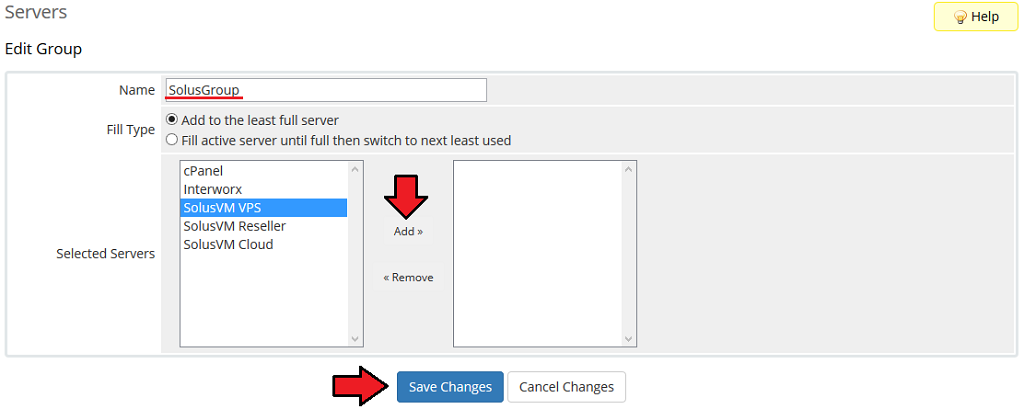
|
| 13. When you have a product group, you can create your product and assign it with SolusVM Extended Cloud. If you already have a product, go to step 15. |
| To create a product click on 'Create a New Product' . |

|
| 14. Afterwards choose your product type and product group from a dropdown menus, enter your product name and press 'Continue' . |
| File:SVC11.png |
| 15. Now go to 'Module Settings' section, choose both 'SolusvmExtendedCloud' and your previously created server group from a dropdown menus. After you press 'Save Changes' , all the configuration options will load below. |
| File:SVC12.png |
| 16. Configuration of the product is divided into two sections: 'Features Setup' and 'Products Configuration' . In Features Setup you can select the functionalities you want to offer your customers. |
| File:SVC12.5.png |
| 17. With configurable options you can allow your customers to place orders perfectly tailored to their needs. Our module offers the following configurable options: |
| File:SVC13.png |
| You have just finished the installation and configuration of the module. From this moment your customers can start to place orders! |
Management
| SolusVM Extended Cloud For WHMCS is very simple and convenient in use. Your customers are only a few clicks away from creating their own servers. |
Interface
| Now let's check the interface of the module in your WHMCS client area where you customers can create and manage virtual servers. Note that the screen below presents the module, right after creation of the product. More features will show up after creating a server. |
| File:SVC14.png |
| You can monitor and manage each product from your WHMCS admin area. |
| File:SVC15.png |
Management of Servers
| Module allows your customers to easily boot (1), reboot (2), shutdown (3) and delete (4) their servers through pressing specified button. Product allows also to quickly change hostname (5) and root password (6). |
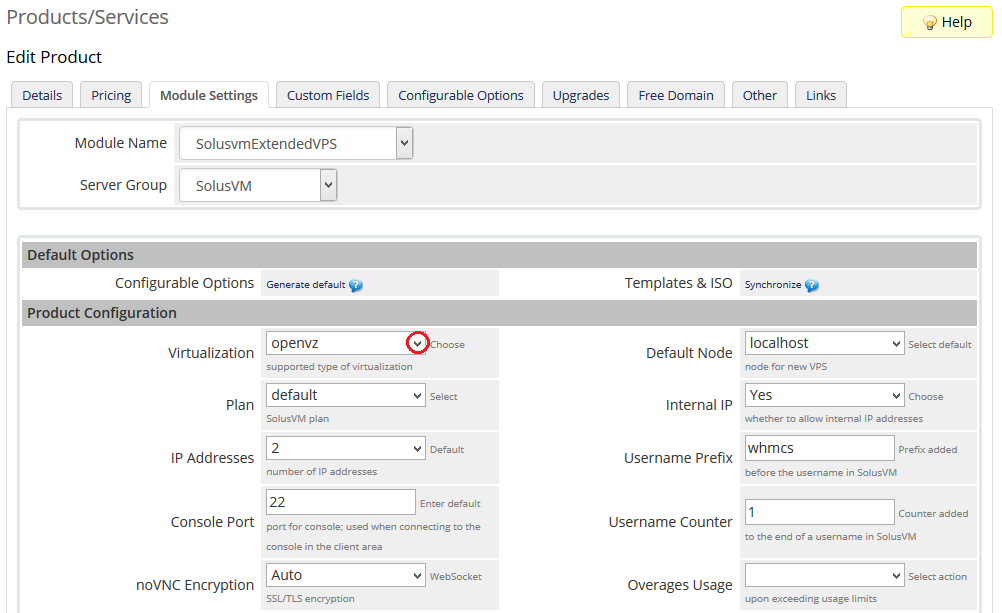
|
| One of the most interesting functionality is a console where your clients can remotely manage server. To access it, simply press on the 'Console' button. Currently module doesn't support SSH console for KVM. This feature will be added soon. |
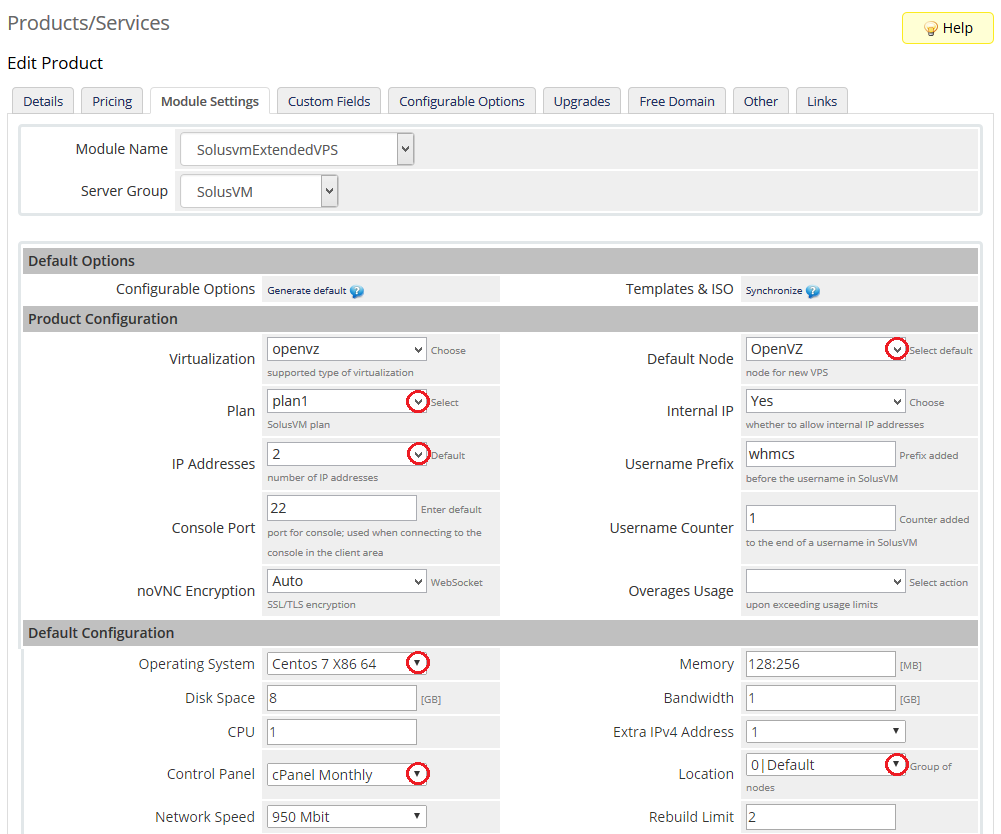
|
| Rebuild feature allows to change template from available templates list. To rebuild your server click on 'Rebuild' button, choose template and click on the blue 'Rebuild' button. |
| File:SV19.png |
| Customers can quickly access the VPS Control Panel with just one click to 'Control Panel' button. |
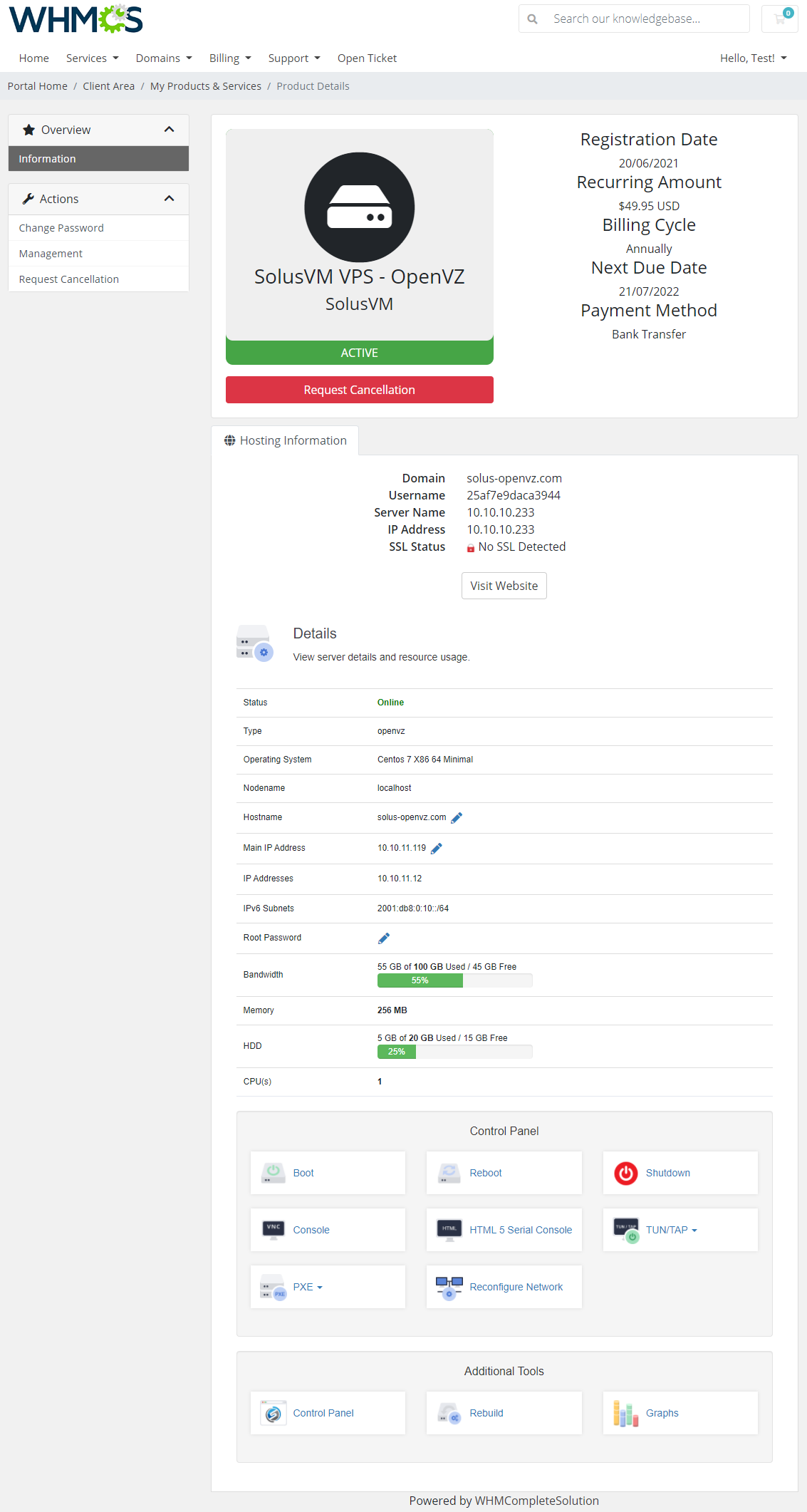
|
Debug Mode
| SolusVM Extended Cloud is very complex module. Therefore many things might go wrong. To help you quickly solve various problems usually connected with WHMCS product/server configuration and SolusVM server configuration, we created a 'Debug Mode' . |
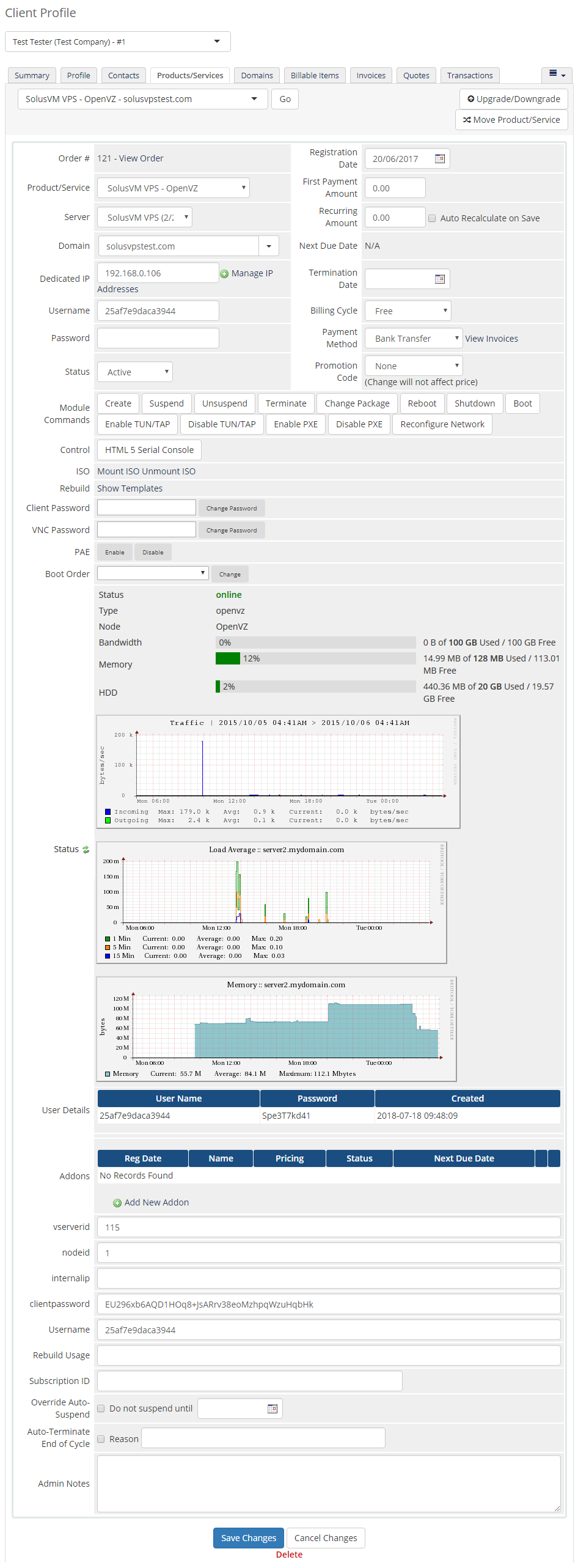
|
| Afterwards go to 'Utilities' → 'Logs' → 'Module Log' and click on 'Disable Debug Logging' in order to enable it. From that moment, each action performed by module will be recorded in the log. |
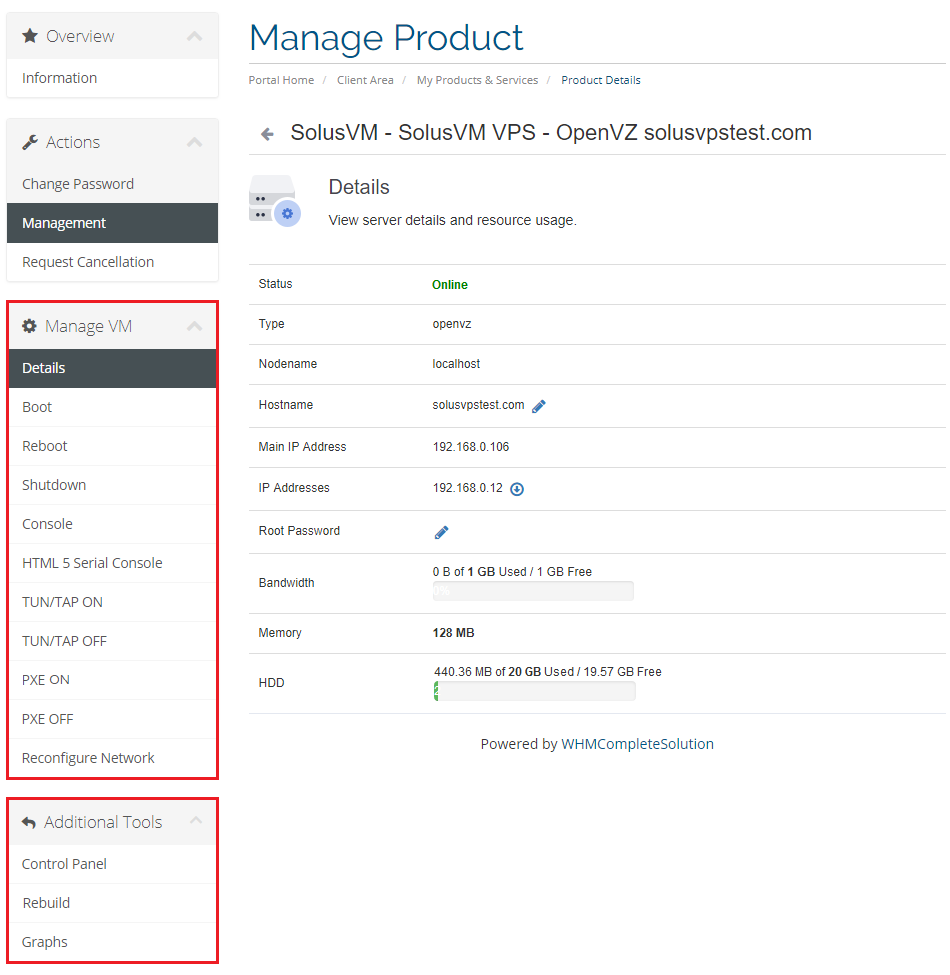
|
| Remember to turn off Debug Mode after you fix the problem. |
Tips
| 1. We made every effort to make our module as easy to install, configure and use, as possible. Therefore we paid special attention to displayed messages. Read carefully each message, follow the instructions and you shall have no problems with using the module. |
| 2. Operations performed on the virtual servers are not executed immediately. Give your SolusVM server some time for processing the request and execution of operation. |
Common Problems
| 1. The vast majority of problems are connected with misconfigured SolusVM server or misconfigured servers/products in your WHMCS. First, make sure that your SolusVM server has properly configured virtual servers, nodes, node groups, templates, plans and API access. |
| 2. When you have problems with connection, check whether your SELinux or firewall is not blocking ports. |